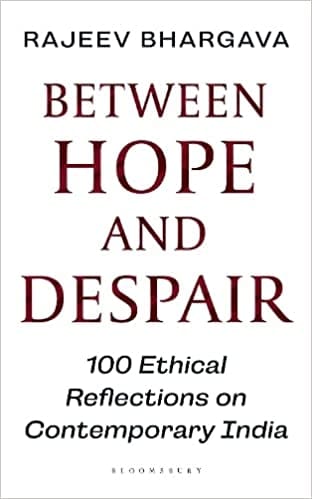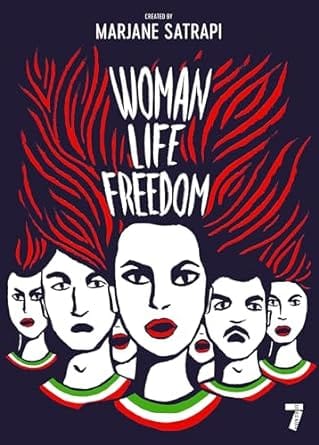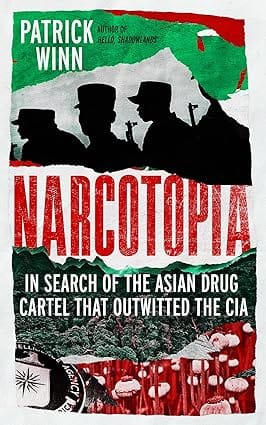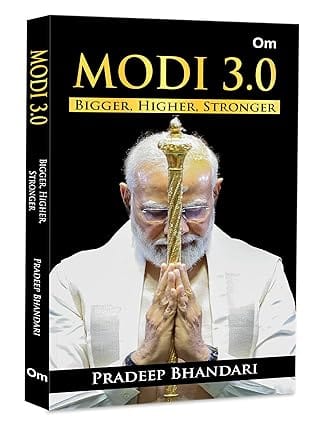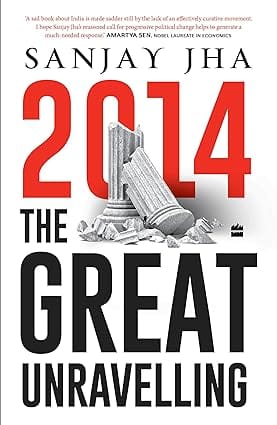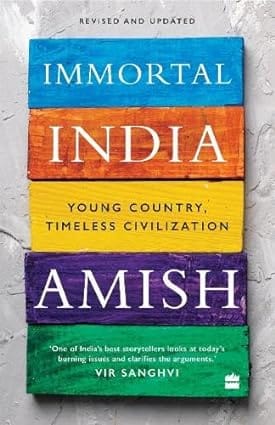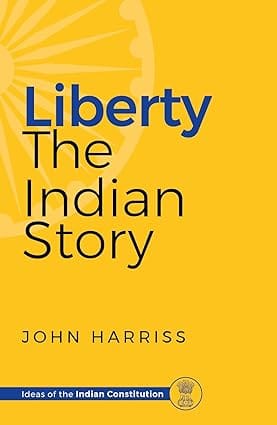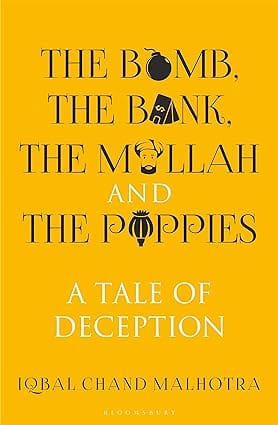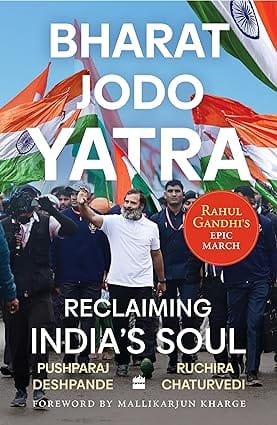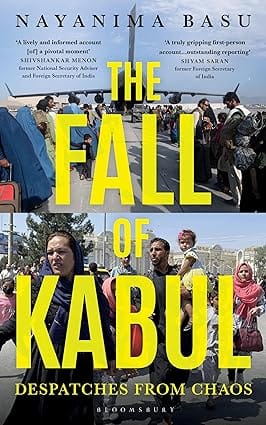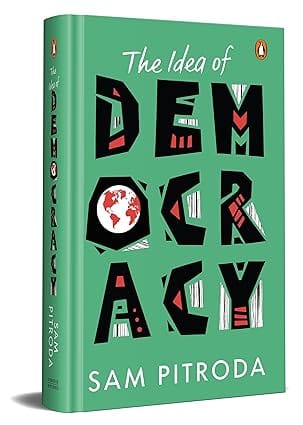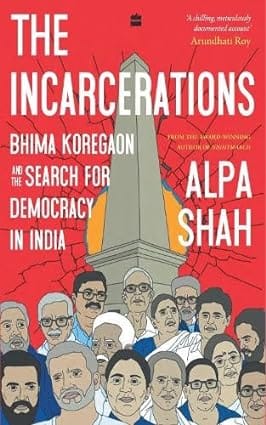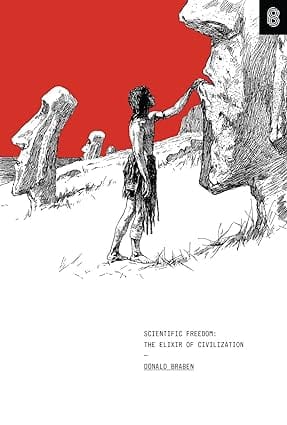WELCOME TO MIDLAND BOOK SHOP!
SHOP FOR
- Contemporary Fiction
- Contemporary Fiction
- Children
- Children
- Comics & Graphic Novels
- Comics & Graphic Novels
- Non-Fiction
- Non-Fiction
- Fiction
- Fiction
Shop No.20, Aurobindo Palace Market, Hauz Khas, Near Church +91 9818282497 | 011 26867121 110016 New Delhi IN
Midland The Book Shop ™
Shop No.20, Aurobindo Palace Market, Hauz Khas, Near Church +91 9818282497 | 011 26867121 New Delhi, IN
+919871604786 https://www.midlandbookshop.com/s/607fe93d7eafcac1f2c73ea4/6468e33c3c35585403eee048/without-tag-line-480x480.png" [email protected]9789394701373 63aadd1900b12382c89731ee Between Hope And Despair 100 Ethical Reflections On Contemporary India https://www.midlandbookshop.com/s/607fe93d7eafcac1f2c73ea4/63aadd1b00b12382c89731fb/41i6o9e1cml-_sx310_bo1-204-203-200_.jpg 9789394701373
India’s collective ethical identity is under duress. We don’t seem to currently agree onwhat our collective good is. Some groups believe that India is finally rediscovering itsHindu identity and becoming a great nation-state. For others, this change has broughtus on the verge of losing our civilisational character of being inclusive but not any lessHindu.Is it possible to bring these groups with divergent views to discuss each other’s point ofview? And do so reasonably, with an open mind? Rajeev Bhargava thinks it is. Hebelieves that the legitimate concerns of all those disenchanted with the idea of aninclusive, pluralist India can actually be addressed within the basic framework of India'sconstitutional democracy.Through these short, elegant and lucid reflections on contemporary events, he takes thereaders to the founding narrative of the republic and clarifies its ethical ideals. Readersare asked to join the process of reflection, to criticise with empathy, particularly wherethe moral compass to properly guide individual and collective action is lost and offerpositive appraisals where due. If we get the fundamentals of our original ethical visionright, then, Bhargava subtly suggests, we might yet save our country from furtherpolarisation and may even heal some of its divisions
Review
Rajeev Bhargava, a scholar of eminence has over the years written a good deal on the principles of political ethics with specific reference to contemporary Indian society. The present work sums up the challenge in its opening lines: ‘India’s collective ethical identity is under duress. We don’t seem to agree currently on what our collective good is.’ This makes for unsettling reading more so in the light of his detailed commentary on the basic principles of our Constitution. But it also gives us hope because it reminds us of what as a nation, we should and can achieve. Mandatory reading for those who wish to make India a better, more humane society. - Hamid Ansari, Vice President of India and Chairman, Rajya Sabha (2007-2017)
Rajeev Bhargava writes because he cannot but write. Even as Ustad Rashid Khan cannot but sing, Malavika Sarukkai cannot but dance. And Jatin Das's brush cannot be still. And I cannot but read him for I want to see current affairs subjected to ethical analysis, valuational norms, and the litmus test of 'What is the intention?' And there Bhargava's writing never fails me. -Gopalkrishna Gandhi, former Governor of West Bengal
Rajeev has been writing, objectively and analytically, on various issues now emerging as challenges to our constitutional ethos. This collection of essays is but a small sample of his thoughts written with uncanny foresight. He raises many provocative questions in his essays and tells us where we are in fulfilling the dream of a just, fair and equal society and where our constitutional democracy is taking us, slowly but surely. -Justice Madan Lokur, former Justice of Supreme Court of India
Rajeev Bhargava’s Between Hope and Despair is a thoughtful look at the social and moral turmoil that faces us in modern India. Examining the nation’s past and present while looking toward its future, Bhargava’s writing covers a wide range of issues, producing an elegant reflection on India’s crisis of ethics -Shashi Tharoor, MP, author and public intellectual
Rajeev, the optimist, through his latest book, "Between Hope and Despair", wishes to heal the growing divisions in India over its identity. He lucidly, insightfully states his own views and hopes a proper response from others will start a meaningful dialogue. Indeed, each of us can dip into this collection, choose an essay on one of the many relevant issues, reflect on it, and contribute to this conversation - Anu Aga, Former Chair of Thermax and Teach for India
The nuance and complexity that Rajeev brings into every question is invaluable. He nudges us towards the possibility of a more equal and just society - T M Krishna, Musician and writer
This is a deep and probing analysis of India's democracy as it is today. It was born out of a dream of inclusivity. But fact is it stands over an area marked by age old fault lines of caste, class, religion and gender. These essays are a profound analysis of how the unavoidable seismic jolts have shaped and reshaped India in the last 75 years - Mrinal Pande, writer and former chief editor of Hindustan Dainik
Rajeev Bhargava writes because he cannot but write. Even as Ustad Rashid Khan cannot but sing, Malavika Sarukkai cannot but dance. And Jatin Das's brush cannot be still. And I cannot but read him for I want to see current affairs subjected to ethical analysis, valuational norms, and the litmus test of 'What is the intention?' And there Bhargava's writing never fails me. -Gopalkrishna Gandhi, former Governor of West Bengal
Rajeev has been writing, objectively and analytically, on various issues now emerging as challenges to our constitutional ethos. This collection of essays is but a small sample of his thoughts written with uncanny foresight. He raises many provocative questions in his essays and tells us where we are in fulfilling the dream of a just, fair and equal society and where our constitutional democracy is taking us, slowly but surely. -Justice Madan Lokur, former Justice of Supreme Court of India
Rajeev Bhargava’s Between Hope and Despair is a thoughtful look at the social and moral turmoil that faces us in modern India. Examining the nation’s past and present while looking toward its future, Bhargava’s writing covers a wide range of issues, producing an elegant reflection on India’s crisis of ethics -Shashi Tharoor, MP, author and public intellectual
Rajeev, the optimist, through his latest book, "Between Hope and Despair", wishes to heal the growing divisions in India over its identity. He lucidly, insightfully states his own views and hopes a proper response from others will start a meaningful dialogue. Indeed, each of us can dip into this collection, choose an essay on one of the many relevant issues, reflect on it, and contribute to this conversation - Anu Aga, Former Chair of Thermax and Teach for India
The nuance and complexity that Rajeev brings into every question is invaluable. He nudges us towards the possibility of a more equal and just society - T M Krishna, Musician and writer
This is a deep and probing analysis of India's democracy as it is today. It was born out of a dream of inclusivity. But fact is it stands over an area marked by age old fault lines of caste, class, religion and gender. These essays are a profound analysis of how the unavoidable seismic jolts have shaped and reshaped India in the last 75 years - Mrinal Pande, writer and former chief editor of Hindustan Dainik
About the Author
Rajeev Bhargava was born in 1954 and educated in Delhi and Oxford. He is currently an honorary fellow at the Centre for the Study of Developing Societies (Delhi) and the director of its Parekh Institute of Indian Thought. He was also the centre’s director from 2007 to 2014. He has taught at the University of Delhi and Jawaharlal Nehru University (Delhi). Bhargava has lectured, taught and held visiting professorship at several universities. He has been a fellow at Harvard University (Massachusetts, US), University of Bristol (UK), Institute of Advanced Studies (Jerusalem), Wissenschaftskolleg (Berlin) and the Institute for Human Sciences (Vienna). He has also been a Distinguished Resident Scholar at the Institute for Religion, Culture and Public Life, Columbia University (New York), and the Asia Chair of Sciences Po (Paris), and between 2015 and 2017, a Berggruen fellow at Stanford (California), Tsinghua (Beijing) and New York Universities. Between 2014 and 2018, he was a professorial fellow at the Institute of Social Justice, ACU (Sydney). In 2022, he was a senior research fellow at the University of Leipzig (Germany). He is currently an honorary fellow at Balliol College, Oxford (UK). Bhargava’s work on individualism and secularism is internationally acclaimed. His publications include Individualism in Social Science (1992), What Is Political Theory and Why Do We Need It? (2010) and The Promise of India’s Secular Democracy (2010). His edited works include Secularism and Its Critics (1998), Politics and Ethics of the Indian Constitution (2008) and Politics, Ethics and the Self: Re-reading Hind Swaraj (2022). Bhargava comes into his own when he is in the classroom. Lately, by contributing regularly for The Hindu, he has also become more publicly engaged. He lives in Delhi with his wife, Tani, who will soon publish her first novel. They have two daughters: Aranyani, a Bharatnatyam dancer, and Vanya, an intellectual historian.
out of stock INR 559
1 1
Email ID already exists!
Your Current password is incorrect
Password Updated Successfully
Thanks for your Feedback
Between Hope And Despair 100 Ethical Reflections On Contemporary India
ISBN: 9789394701373
₹559
₹699 (20% OFF)SIZE GUIDE
Back In Stock Shortly
Sold By: Hauz Khas - Aurobindo Market
Details
- ISBN: 9789394701373
- Author: Rajeev Bhargava
- Publisher: Bloomsbury
- Pages: 352
- Format: Paperback
Book Description
India’s collective ethical identity is under duress. We don’t seem to currently agree onwhat our collective good is. Some groups believe that India is finally rediscovering itsHindu identity and becoming a great nation-state. For others, this change has broughtus on the verge of losing our civilisational character of being inclusive but not any lessHindu.Is it possible to bring these groups with divergent views to discuss each other’s point ofview? And do so reasonably, with an open mind? Rajeev Bhargava thinks it is. Hebelieves that the legitimate concerns of all those disenchanted with the idea of aninclusive, pluralist India can actually be addressed within the basic framework of India'sconstitutional democracy.Through these short, elegant and lucid reflections on contemporary events, he takes thereaders to the founding narrative of the republic and clarifies its ethical ideals. Readersare asked to join the process of reflection, to criticise with empathy, particularly wherethe moral compass to properly guide individual and collective action is lost and offerpositive appraisals where due. If we get the fundamentals of our original ethical visionright, then, Bhargava subtly suggests, we might yet save our country from furtherpolarisation and may even heal some of its divisions
Review
Rajeev Bhargava, a scholar of eminence has over the years written a good deal on the principles of political ethics with specific reference to contemporary Indian society. The present work sums up the challenge in its opening lines: ‘India’s collective ethical identity is under duress. We don’t seem to agree currently on what our collective good is.’ This makes for unsettling reading more so in the light of his detailed commentary on the basic principles of our Constitution. But it also gives us hope because it reminds us of what as a nation, we should and can achieve. Mandatory reading for those who wish to make India a better, more humane society. - Hamid Ansari, Vice President of India and Chairman, Rajya Sabha (2007-2017)
Rajeev Bhargava writes because he cannot but write. Even as Ustad Rashid Khan cannot but sing, Malavika Sarukkai cannot but dance. And Jatin Das's brush cannot be still. And I cannot but read him for I want to see current affairs subjected to ethical analysis, valuational norms, and the litmus test of 'What is the intention?' And there Bhargava's writing never fails me. -Gopalkrishna Gandhi, former Governor of West Bengal
Rajeev has been writing, objectively and analytically, on various issues now emerging as challenges to our constitutional ethos. This collection of essays is but a small sample of his thoughts written with uncanny foresight. He raises many provocative questions in his essays and tells us where we are in fulfilling the dream of a just, fair and equal society and where our constitutional democracy is taking us, slowly but surely. -Justice Madan Lokur, former Justice of Supreme Court of India
Rajeev Bhargava’s Between Hope and Despair is a thoughtful look at the social and moral turmoil that faces us in modern India. Examining the nation’s past and present while looking toward its future, Bhargava’s writing covers a wide range of issues, producing an elegant reflection on India’s crisis of ethics -Shashi Tharoor, MP, author and public intellectual
Rajeev, the optimist, through his latest book, "Between Hope and Despair", wishes to heal the growing divisions in India over its identity. He lucidly, insightfully states his own views and hopes a proper response from others will start a meaningful dialogue. Indeed, each of us can dip into this collection, choose an essay on one of the many relevant issues, reflect on it, and contribute to this conversation - Anu Aga, Former Chair of Thermax and Teach for India
The nuance and complexity that Rajeev brings into every question is invaluable. He nudges us towards the possibility of a more equal and just society - T M Krishna, Musician and writer
This is a deep and probing analysis of India's democracy as it is today. It was born out of a dream of inclusivity. But fact is it stands over an area marked by age old fault lines of caste, class, religion and gender. These essays are a profound analysis of how the unavoidable seismic jolts have shaped and reshaped India in the last 75 years - Mrinal Pande, writer and former chief editor of Hindustan Dainik
Rajeev Bhargava writes because he cannot but write. Even as Ustad Rashid Khan cannot but sing, Malavika Sarukkai cannot but dance. And Jatin Das's brush cannot be still. And I cannot but read him for I want to see current affairs subjected to ethical analysis, valuational norms, and the litmus test of 'What is the intention?' And there Bhargava's writing never fails me. -Gopalkrishna Gandhi, former Governor of West Bengal
Rajeev has been writing, objectively and analytically, on various issues now emerging as challenges to our constitutional ethos. This collection of essays is but a small sample of his thoughts written with uncanny foresight. He raises many provocative questions in his essays and tells us where we are in fulfilling the dream of a just, fair and equal society and where our constitutional democracy is taking us, slowly but surely. -Justice Madan Lokur, former Justice of Supreme Court of India
Rajeev Bhargava’s Between Hope and Despair is a thoughtful look at the social and moral turmoil that faces us in modern India. Examining the nation’s past and present while looking toward its future, Bhargava’s writing covers a wide range of issues, producing an elegant reflection on India’s crisis of ethics -Shashi Tharoor, MP, author and public intellectual
Rajeev, the optimist, through his latest book, "Between Hope and Despair", wishes to heal the growing divisions in India over its identity. He lucidly, insightfully states his own views and hopes a proper response from others will start a meaningful dialogue. Indeed, each of us can dip into this collection, choose an essay on one of the many relevant issues, reflect on it, and contribute to this conversation - Anu Aga, Former Chair of Thermax and Teach for India
The nuance and complexity that Rajeev brings into every question is invaluable. He nudges us towards the possibility of a more equal and just society - T M Krishna, Musician and writer
This is a deep and probing analysis of India's democracy as it is today. It was born out of a dream of inclusivity. But fact is it stands over an area marked by age old fault lines of caste, class, religion and gender. These essays are a profound analysis of how the unavoidable seismic jolts have shaped and reshaped India in the last 75 years - Mrinal Pande, writer and former chief editor of Hindustan Dainik
About the Author
Rajeev Bhargava was born in 1954 and educated in Delhi and Oxford. He is currently an honorary fellow at the Centre for the Study of Developing Societies (Delhi) and the director of its Parekh Institute of Indian Thought. He was also the centre’s director from 2007 to 2014. He has taught at the University of Delhi and Jawaharlal Nehru University (Delhi). Bhargava has lectured, taught and held visiting professorship at several universities. He has been a fellow at Harvard University (Massachusetts, US), University of Bristol (UK), Institute of Advanced Studies (Jerusalem), Wissenschaftskolleg (Berlin) and the Institute for Human Sciences (Vienna). He has also been a Distinguished Resident Scholar at the Institute for Religion, Culture and Public Life, Columbia University (New York), and the Asia Chair of Sciences Po (Paris), and between 2015 and 2017, a Berggruen fellow at Stanford (California), Tsinghua (Beijing) and New York Universities. Between 2014 and 2018, he was a professorial fellow at the Institute of Social Justice, ACU (Sydney). In 2022, he was a senior research fellow at the University of Leipzig (Germany). He is currently an honorary fellow at Balliol College, Oxford (UK). Bhargava’s work on individualism and secularism is internationally acclaimed. His publications include Individualism in Social Science (1992), What Is Political Theory and Why Do We Need It? (2010) and The Promise of India’s Secular Democracy (2010). His edited works include Secularism and Its Critics (1998), Politics and Ethics of the Indian Constitution (2008) and Politics, Ethics and the Self: Re-reading Hind Swaraj (2022). Bhargava comes into his own when he is in the classroom. Lately, by contributing regularly for The Hindu, he has also become more publicly engaged. He lives in Delhi with his wife, Tani, who will soon publish her first novel. They have two daughters: Aranyani, a Bharatnatyam dancer, and Vanya, an intellectual historian.
User reviews
NEWSLETTER
Subscribe to get Email Updates!
Thanks for subscribing.
Your response has been recorded.

India's Iconic & Independent Book Store offering a vast selection of books across a variety of genres Since 1978.
"We Believe In The Power of Books" Our mission is to make books accessible to everyone, and to cultivate a culture of reading and learning. We strive to provide a wide range of books, from classic literature, sci-fi and fantasy, to graphic novels, biographies and self-help books, so that everyone can find something to read.
Whether you’re looking for your next great read, a gift for someone special, or just browsing, Midland is here to make your book-buying experience easy and enjoyable.
We are shipping pan India and across the world.
For Bulk Order / Corporate Gifting
 +91 9818282497 |
+91 9818282497 |  [email protected]
[email protected]
Click To Know More
INFORMATION
ACCOUNT
TRACK SHIPMENT
ADDRESS
Midland Book Shop - Hauz Khas
Shop No.20, Aurobindo Palace Market, Near Church, New Delhi
Shop No.20, Aurobindo Palace Market, Near Church, New Delhi

